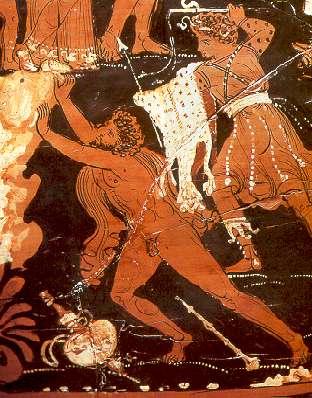A surprising similarity between Wu Tsang's story and Greek mythology in the story of Sisyphus

A Chinese legend tells of a man named "Wu Tsang who was exiled to the moon and had to cut down the cinnamon tree as punishment for his attempt to become immortal. He never managed to cut down the tree. Every time he hit the trunk, the bark of the tree would grow again" (Chinese mythology p 148). Sound familiar? Right! And why is it familiar? to the story of Sisyphus, king of Corinth. This king one day saw a large eagle with a girl on his shoulders, whom he was transporting to a distant place. This girl was Aegina, the home of the river god Esopus, who suspected that Zeus, the king of the gods, was involved. All he asked Sisyphus for was help in finding his home. Sisyphus granted his request and told him where the lost daughter was. Zeus didn't like it, to put it mildly, and decided to punish Sisyphus. He forced Sisyphus to "roll to the worlds in Hades a rock up the mountain which immediately returned and rolled down" (Hamilton 254:1982).
In the two geographically distant stories, one in Greece and the other in China, they tell a similar story about humans, one whose origin is unknown and the other a queen of a country, who are punished for their actions in a particularly cruel way. Both must perform an action that repeats itself endlessly. This is an action that yields no results and ends in continuous frustration and physical exhaustion. Each of them was punished for a different act, the Chinese Wu Tsang was punished for apparently wanting to resemble the gods in some way and the other for helping the god. In both stories there is a hidden statement that there is a clear boundary between the world of humans and the world of the gods and that humans must not cross this boundary. The gods' reaction to this is harsh and unforgiving.
The story of Sisyphus is an example of an interesting anthropological phenomenon of turning the names of gods into concepts within the same culture even if it was done in a later period. In this case the concept that has taken root in Western culture is Sisyphean labor. Other examples for example are the Oedipus complex, narcissism, the Pygmalion effect, etc. Is this phenomenon unique to Western culture? Maybe it can be found in Chinese culture and other cultures?
Sources
Chinese mythology - royal dynasties and dragons, Ofarim publishing house, 159 p.
Hamilton E.-Mythology 1982 Masada Publishing 254 p.
